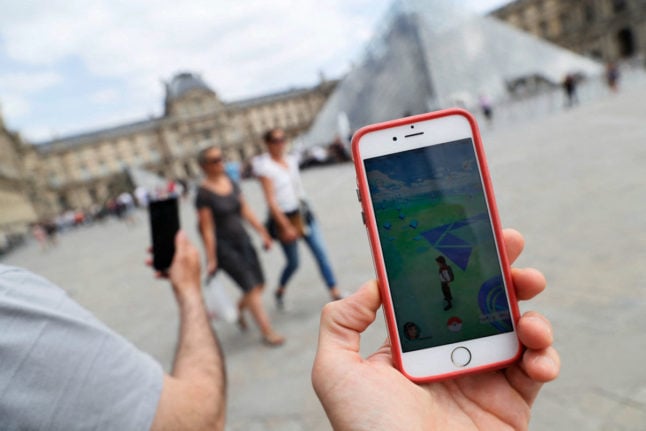Let’s start with Games-specific information, especially the venues and how to get there.
A quick note first – access to any large event in Paris usually involves a bag search and a pat-down even in normal times, and security during the Games will be extremely tight, so allow yourself plenty of time to get to the venue and then to get through security.
Olympic and Paralympic Games venues
Venue websites – almost all of the Paris Games venues are existing sites that are either used for sports or tourist attractions – which means they all have websites with a ‘plan your visit’ section giving information on the best way to get there by car, bike or public transport.
Most of the bigger ones, such as Stade de France, Parc des Princes, Grand Palais and Chateau de Versailles, have websites available in French and English.
Paris 2024 – the Games organisers have a well-designed website packed with useful information, available in French or English.
The venues page, as well as having a map of all Games venues, has a tool allowing you to get estimated travel times between Games sites – find it here. Their estimates seem on the generous side, but we’re all in favour of allowing yourself plenty of time to get where you need to be.
Anticiper les Jeux – this government website is aimed at Paris residents, helping them to plan ahead for the Games period, but it does have useful up-to-date information on public transport alterations and closures during the Games period. It is regularly updated with the latest information, but so far is only available in French.
Getting around Paris
The below apps and websites will be useful for any visitor to the city, but especially Games visitors who need to find their way between venues. You will need to make sure your phone’s locations services are turned on if you want to use the GPS route mapping options.
CityMapper – extremely useful for planning city transport are travel apps such as CityMapper. They use GPS to find your current location and then give you suggestions for how to get to your destination – with options for public transport, walking, cycling, or driving, plus estimated travel times. Their suggested public transport routes are based on real-time updates so will avoid lines that are closed or disrupted. Widely used across Europe, this app is generally reliable for Paris and the surrounding area.
Google Maps – Google Maps works in basically the same way as CityMapper – look at the venue you want to go to then click ‘directions’ and the site uses GPS to find your current location and then gives you suggestions for getting there.
The app will give you options for public transport, driving, cycling or walking – but if you decide to walk then we find that its mapping option is probably better in real time than CityMapper’s.
A quick note on walking – Paris is an extremely compact capital so it’s always worth checking out how far apart your destinations are as walking of often one of the quickest options, as well as being much more scenic than being stuck underground in a Metro tunnel.
Ile-de-France Mobilités – this is the Paris region’s own transport app, which gives you a journey planning service as above but also allows you to buy tickets to the capital’s integrated public transport system (bus, Metro, tram and RER regional trains). It is available in French in English.
In order to buy tickets, you need to create an account and link a debit card first, but once you’re set up you can top up tickets or travel passes when you’re out and about. Using this app, the phone itself becomes the ticket and you simply scan your phone at the card reader at Metro stations or on buses or trams. The ticket can even be read if your phone is switched off or out of battery (via technology called NFC, although it seems like witchcraft to us).
Vélib’ – Paris is increasingly a cycle-friendly city with many kilometres of new bike lanes.
There is also Vélib’, the city’s short-term bike hire service and you will see the distinctive mint green Vélib’ bikes and their grey storage racks everywhere. In order to hire one, you first need to download the Vélib’ app and link your debit card so that you can pay as you go. The app also shows you where your nearest bike rack is so you can find a bike and go. It is available in English.
VTCs – if you need to get somewhere in a hurry your best best will probably be either a taxi or a ride-hire service such as Uber – these platforms are known as VTCs (Voiture de tourisme avec chauffeur) in France. Uber and Bolt both operate in Paris, while Heetch is a local start-up that operates in basically the same way. VTCs apply ‘dynamic pricing’, which means they may become more expensive during periods of high demand.
G7 – you can also hail a taxi on the street in the old-fashioned way (or go to official taxi ranks at railways stations or airports) but G7 is the website and app for official Paris taxis. These operate an advance booking service for a taxi if you know that you need to book a ride for a specific time.
Eating and drinking
The Fork – Previously La Fourchette but now anglicised, The Fork lists a huge selection of restaurants (around 40,000 across France) in all of France’s main cities, with ratings, comments, photos and lots of special offers.
The app is easy to use and if you’re not confident about booking a table over the phone, you can do it here without having to speak a word of French.
Popular restaurants in Paris can get busy at peak times like the summer or the weekend and that will be especially true over the Games period, so if there is anywhere you have set your heart on eating, we strongly recommend that you book ahead – either via The Fork or on the restaurant’s own website.
Deliveroo or Uber Eats – Both of these exist in France and allow you to order your food on the app, either to pick up or to have it delivered. The food offering ranges from pizza and McDonald’s to takeout from nice restaurants.
You may find them a little more expensive than in your home country – this is because after several court cases the companies were forced to treat their French delivery staff as employees with rights such as sick pay and holidays.
MisterGoodBeer– This app will help you find the cheapest pints near you, and definitely comes in handy in an expensive city like Paris. On the map, you can set your maximum price, and it will help you find the bars nearby that are in your price range.
Others
DeepL – if you don’t speak French then you might want to keep a translation app handy just to help out with anything that you don’t understand. Google Translate is the free option, DeepL is generally a better translator (it understands idioms, slang and non-literal translations) but it does have a limit to the amount of free translations you can use per day.
Ici Toilette – if you’re caught short, this handy app will show you where the nearest toilet is, based on your location.
And finally . . .
The Local – don’t forget that The Local also has an app. It’s got all our content on the latest news in France and any Games developments such as strikes or changes to transport, plus our Paris Olympics Guides and all our content about France, French culture and learning French.



 Please whitelist us to continue reading.
Please whitelist us to continue reading.
Member comments